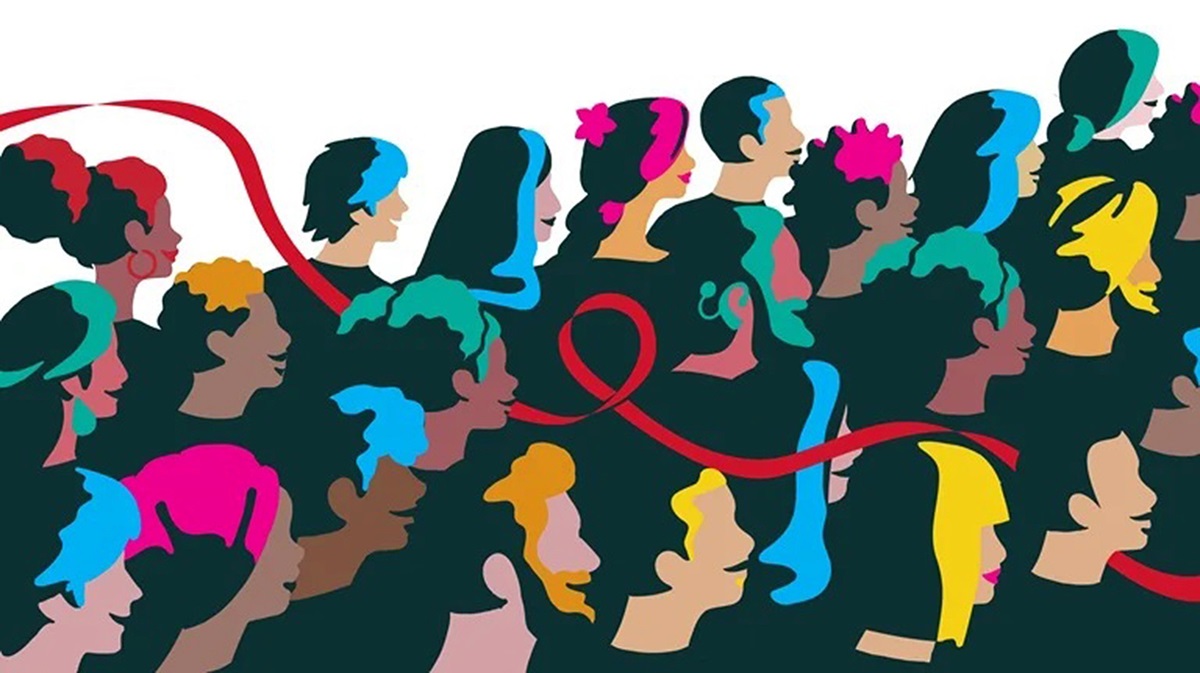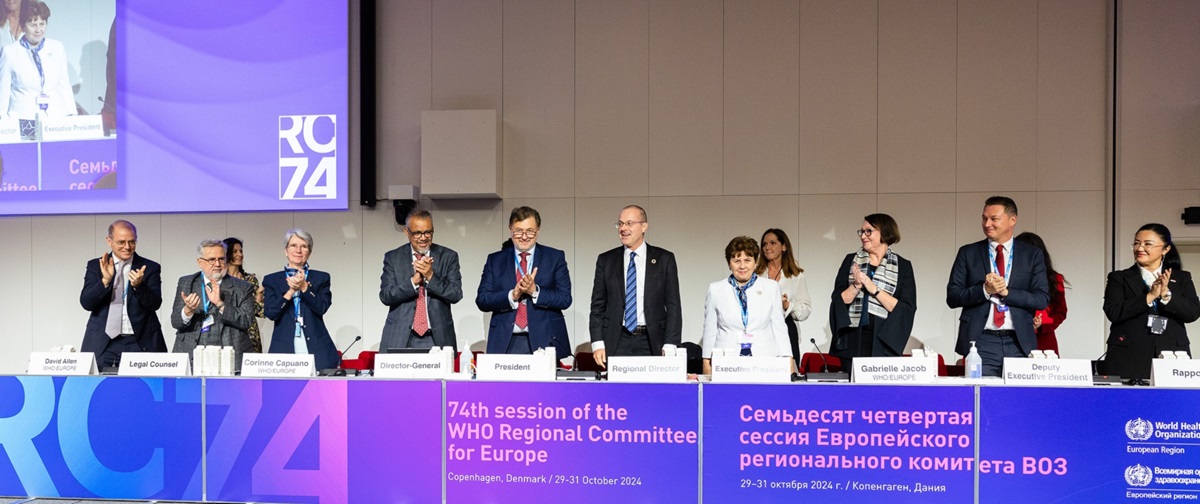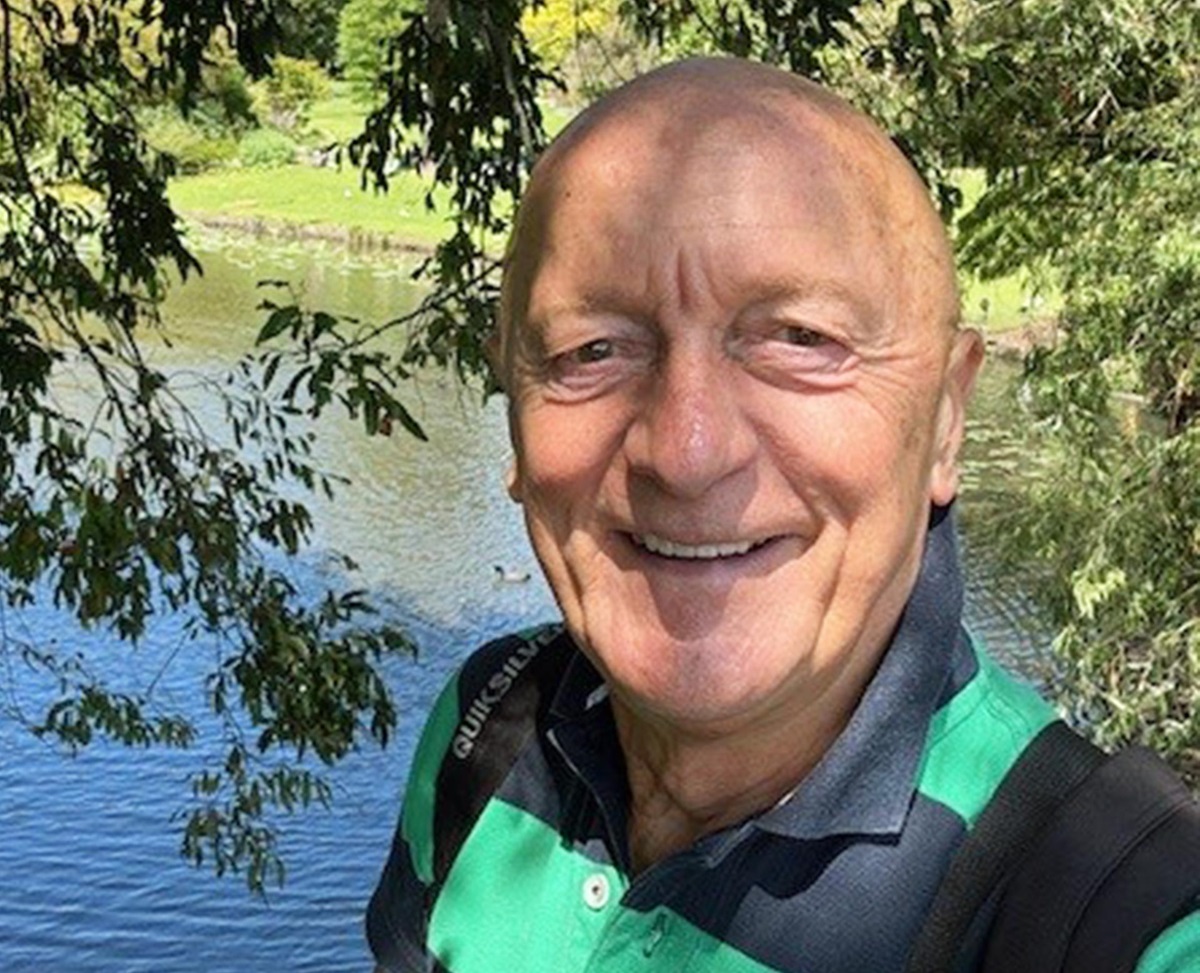No images? Click here
28-11-2024
Ahead of World AIDS Day on 1 December, a new report, “HIV/AIDS surveillance in Europe 2024”, has been released today by WHO/Europe and the European Centre for Disease Prevention and Control (ECDC). The report shows that since the beginning of the epidemic in the early 1980s, over 2.6 million people have been diagnosed with HIV in the WHO European Region, including more than 650 000 in the European Union and European Economic Area (EU/EEA). Despite significant progress made since then, nearly 1 in 3 people living with HIV in the Region still do not know their HIV status.
The key findings demonstrate the critical need for prevention, early testing, diagnosis and access to treatment to improve people’s health outcomes and reduce transmission, as well as the urgent need to reduce stigma around HIV.
World AIDS Day 2024
Take the rights path: My health, my right!
1 December 2024
The world can end AIDS – if everyone’s rights are protected. With human rights at the centre, with communities in the lead, the world can end AIDS as a public health threat by 2030. On 1 December, WHO joins partners and communities to commemorate World AIDS Day 2024 under the theme “Take the rights path: My health, my right!”. In this year’s campaign, WHO is calling on global leaders and citizens to champion the right to health by addressing the inequalities that hinder progress in ending AIDS.
UKRAINE EMERGENCY
WHO/Europe releases new report with data on nursing shortages in Ukraine
21-11-2024
COVID-19
Increasing Recognition, Research and Rehabilitation for Post COVID-19 Condition (long COVID)
WHO remains committed to learning more about long COVID and to finding ways to improve the medium- and long-term outcomes for people affected by it.
Partnering with the European Union to support deployment of COVID-19 vaccines and vaccination
The EU and WHO/Europe together provide critical assistance to Member States of the WHO European Region to ensure local readiness for safe and effective vaccination campaigns against COVID-19
CLIMATE CRISIS: EXTREME WEATHER
Check our new health topics:
Q&A: Public health advice in the aftermath of flooding: how to protect your health and keep safe

20-11-2024
On 20 November 2024, World Children’s Day, WHO/Europe and the United Nations Children’s Fund (UNICEF) are releasing 10 evidence-based fact sheets that will drive an ambitious new strategy for child and adolescent health and well-being in the years ahead. The fact sheets not only present the latest available data and identify critical challenges but, crucially, highlight solutions and opportunities for action.
“We stand at a defining moment for children’s health in our region,” says Dr Natasha Azzopardi-Muscat, WHO/Europe’s Director for Country Health Policies and Systems. “By focusing on such a wide and important range of health-related issues – such as the use of social media and online gaming, mental health, breastfeeding and others – the fact sheets give countries the tools they need to take decisive action that will shape the health of current and future generations.” Read more
Accelerating progress against antimicrobial resistance in the WHO European Region
18-11-2024
WHO/Europe launches first-ever technical advisory group on disability and health
18-11-2024
WHO/Europe launches a new toolkit to help countries to transform long-term care systems
12-11-2024
Cheers or tears? WHO playbook exposes alcohol’s true cost to health
08-11-2024

22-11-2024
The 74th WHO Regional Committee for Europe (RC74) drew to a close on 31 October 2024 following a 3-day agenda covering a wide range of discussions and decisions on health and governance topics. Dr Hans Henri P. Kluge, WHO’s Regional Director for Europe since 2020, was nominated for a second term by Member States and committed to moving forward on the next stage of the European Programme of Work (EPW).
Speaking after the election, Dr Kluge said, “Serving as WHO Regional Director for Europe has been the honour of my life, and I am truly so thankful – and humbled – by the overwhelming support demonstrated for my nomination. Looking ahead to my second term next year, my first task will be to consult all 53 Member States across Europe and Central Asia, as well as all our health partners, to develop our next 5-year plan together, also known as the European Programme of Work’s second edition.” Read more

28-11-2024
For someone turning 70 on his next birthday, John Jaquiss from the United Kingdom of Great Britain and Northern Ireland is impressively fit, speaking enthusiastically about the 5-kilometre mountain hike he is about to embark upon, having started the day with an early morning swim. Yet 23 years ago, when his doctor broke the news to him that he had acquired the HIV virus, he did not rate his chances of seeing 60.
“When I got diagnosed, I thought I might have 15 years if I’m lucky,” he says. “Maybe I’ll make 60. I’m lucky because I’ve taken a positive approach to life. From the outset I focused on keeping fit and well.” John’s friends and social network played a vital role in helping him get through this difficult time. Showing up for each other, some of his friends shared their own experience of living with HIV and gave him hope when he needed it. Read more
Addressing antimicrobial resistance through smart architecture and urban planning
20-11-2024
Wales’s commitment to becoming a well-being economy spotlighted by WHO report
22-11-2024
Marking a milestone in diabetes care in Kyrgyzstan
21-11-2024
“The best treatment for someone with type 2 diabetes is motivating them; walk in their shoes”
10-11-2024
We are primary health care
08-11-2024
Nurses and midwives in Poland trained to help survivors of gender-based violence
07-11-2024

EVENTS
Improving Greece’s Health Technology Assessment system: First Stakeholder Workshop in Athens
13 December 2024, Athens, Greece
Online training workshop: Measles and rubella elimination and maintenance of polio-free status in the WHO European Region
21 – 23 January 2025
New leadership development programme: launching Tier 3 of the Pan-European Leadership Academy (ELA)
March 2025, Copenhagen, Denmark








